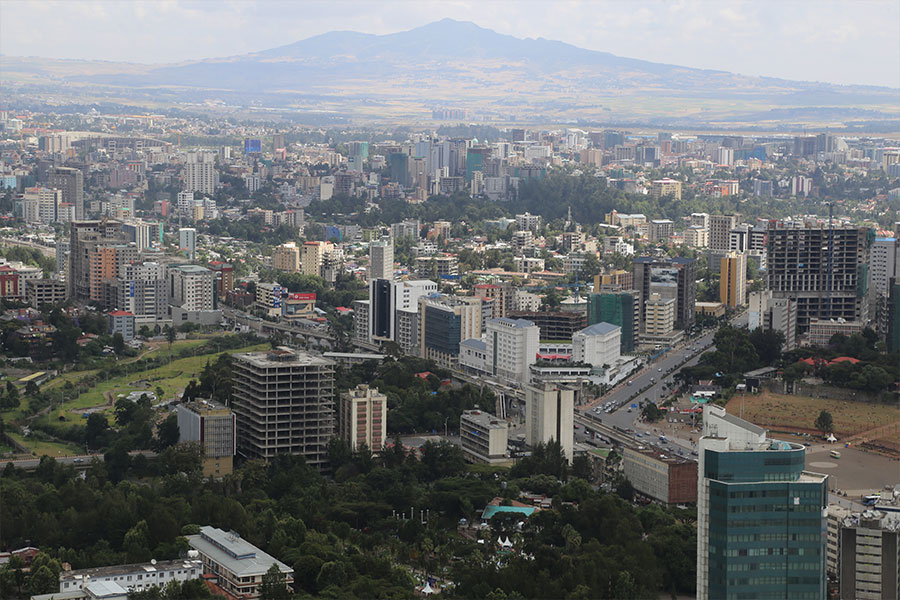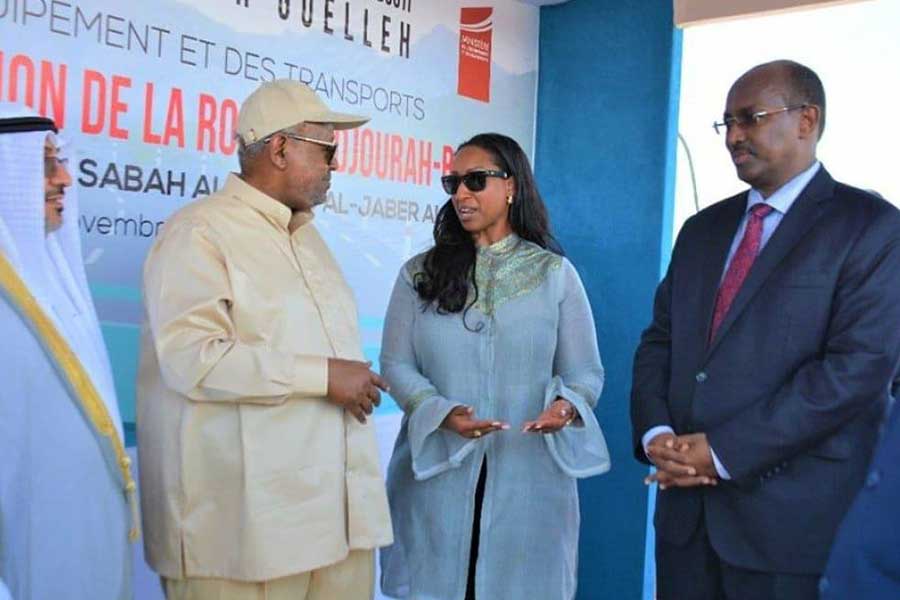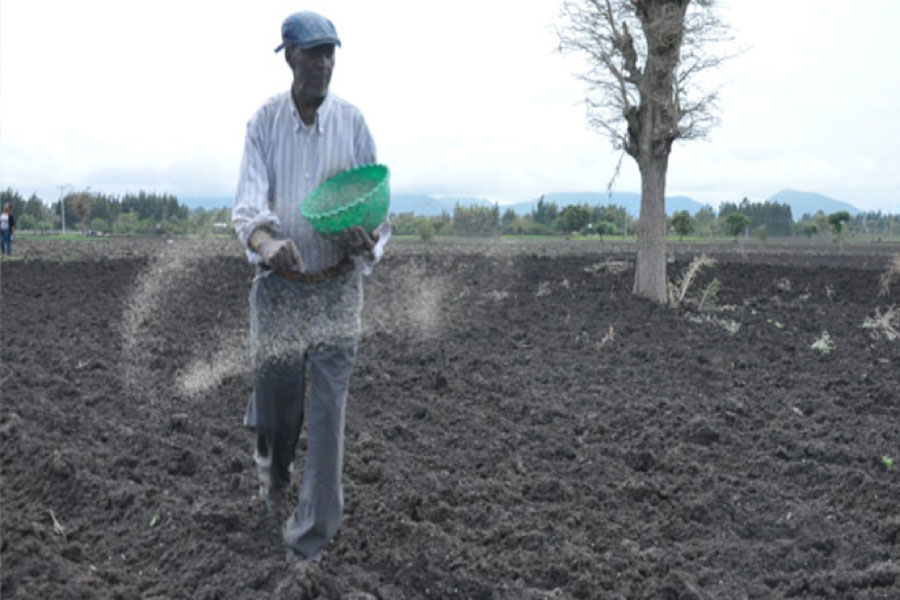
A vital shift is on the horizon for Ethiopia’s manufacturers, who once thrived on exports braced by the African Growth & Opportunity Act (AGOA). If a bold proposal by Melaku Alebel, minister of Industry, and his senior officials gains traction, industrial park operators could soon tap into the domestic markets, signalling a significant shift in the federal government’s trade strategy.
In the aftermath of Ethiopia’s January 2022 suspension from AGOA - a consequence of a bitter two-year conflict with armed forces in Tigray - the federal government initiated a stopgap measure: temporarily letting companies in industrial parks access local markets to stave off potential business collapses. With AGOA’s preferential status set to sunset in 2025 and Ethiopia’s position still precarious, the urgency for a more sustainable solution has become pressing.
The proposed strategy, which is now before the Ethiopian Investment Board - a federal agency that operates under the purview of the Prime Minister - is audacious. The Board comprises members such as Central Bank Governor Mamo Mihretu, Finance Minister Ahmed Shide, Fitsum Asfaw (PhD), minister of Planning & Development, Lelise Neme, head of the Ethiopian Investment Commission, and Grima Biru, senior macroeconomic advisor to the Prime Minister.
Manufacturers might soon be required to channel 50pc of their finished goods, along with their inputs, into the domestic market.
State Minister for Industry, Tarekegn Bululta, remains hopeful but pragmatic about a potential AGOA reinstatement.
“It’s beyond our control,” Tarekegn told Fortune.
He highlighted the country’s proactive measures to elevate the manufacturing sector, which currently contributes 3.1pc to Ethiopia’s GDP.
“We’re exploring options, including renting out spaces to local manufacturers and seeking markets outside the US,” said Tarekegn.
In a recent performance snapshot, Ethiopia’s five main manufacturing sectors — encompassing textile, food & beverages, leather products, chemical, and tech — raked in 266 million dollars, achieving 69pc of their annual target in the third quarter of last year. The Ministry of Industry is bullish about the future, targeting 400 million dollars from manufacturing exports this year. Encouragingly, textile exports to countries like Italy, Germany, India, Korea, Belgium, and the United Kingdom (UK) have already brought in five million dollars in the past two months.
Zerihun Abebe, who oversees competitive export production at the Ministry, emphasised the need to deal with sweeping employee layoffs plaguing the industrial parks. The mostly textile-centric Hawassa Industrial Park (HIP) witnessed a 16pc workforce dip of 25,000 post-AGOA. Hong Kong’s Tal Apparel, a six-year veteran of the Park, reflects this trend. Once a busy operation exporting shirts to the US, the company now grapples with downsizing and dwindling demand.
Fitsum Tafesse, Tal’s logistics manager, offered a sobering perspective. The company has stopped recruiting new employees and is struggling to maintain the 1,100 workforce as it operates at half capacity.
“Domestic sales might just about cover rent,” he told Fortune, highlighting the daunting challenges of adapting to a post-AGOA landscape, where domestic wholesalers find a seven-dollar price tag for a shirt steep. “We are simply surviving.”
Before the AGOA fallout, these manufacturers were confined to selling a mere five percent of their output locally. The nebulous nature of the directives stymied manufacturers from taking advantage of the domestic potential, according to Hibret Lema, who heads the Investors Association at the Park. Hibret championed the proposed policy shift but stressed the imperative for transparent regulatory papers to instil corporate confidence.
“It’s better than nothing,” said Hibret, emphasising the need for consistent regulations.
Beyond these immediate challenges, a broader picture emerges.
A World Bank report from November last year painted a concerning picture—industrial parks underperforming by a staggering half a billion dollars. Despite having 15 parks in operation, these infrastructural behemoths have only recouped half their construction costs.
The fallout has been drastic for companies like the US-based New Wing, a leather shoe manufacturing stalwart. Once a thriving operation churning out 2000 pairs daily, it is down to a mere fraction of last week’s figure.
However, it is not all gloom, according to New Wing’s Deputy Manager, Evano Mesifin. He is optimistic about ongoing negotiations to supply safety footwear for corporate giants like Ethiopian Airlines. Evano, resonating with the broader industry sentiment, was sceptical about an AGOA return and is actively pursuing European and Asian markets.
“I don’t think AGOA will be reinstated,” Evano told Fortune.
Industry observers say this episode offers Ethiopia a silver lining: an opportunity to recalibrate and diversify.
Abnet Belay, an investment consultant from MPE Business & Investment Consulting, weighed in, suggesting that the federal government forge stronger regional trade alliances within COMESA and AfCFTA. His counsel is to avoid over-reliance on distant markets and foster robust supply chains within the country.
“Diversification is the key,” Abinet told Fortune. “Relying heavily on a single market was a misstep.”
PUBLISHED ON
Sep 30,2023 [ VOL
24 , NO
1222]

My Opinion | Sep 21,2024

Agenda | Aug 28,2021

Sponsored Contents | Jun 17,2021

Fortune News | Jun 21,2025

Fortune News | Nov 09,2019

Commentaries | Nov 05,2022

Fortune News | Aug 18,2024

Fortune News | Feb 05,2022

Fortune News | Dec 11,2021

Fortune News | Sep 16,2023

Dec 22 , 2024 . By TIZITA SHEWAFERAW
Charged with transforming colossal state-owned enterprises into modern and competitiv...

Aug 18 , 2024 . By AKSAH ITALO
Although predictable Yonas Zerihun's job in the ride-hailing service is not immune to...

Jul 28 , 2024 . By TIZITA SHEWAFERAW
Unhabitual, perhaps too many, Samuel Gebreyohannes, 38, used to occasionally enjoy a couple of beers at breakfast. However, he recently swit...

Jul 13 , 2024 . By AKSAH ITALO
Investors who rely on tractors, trucks, and field vehicles for commuting, transporting commodities, and f...

Jun 28 , 2025
Meseret Damtie, the assertive auditor general, has never been shy about naming names...

Jun 21 , 2025
A well-worn adage says, “Budget is not destiny, but it is direction.” Examining t...

Jun 14 , 2025
Yet again, the Horn of Africa is bracing for trouble. A region already frayed by wars...

Jun 7 , 2025
Few promises shine brighter in Addis Abeba than the pledge of a roof for every family...